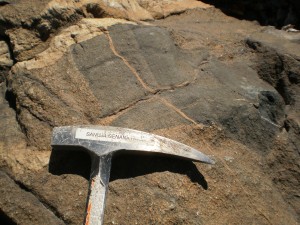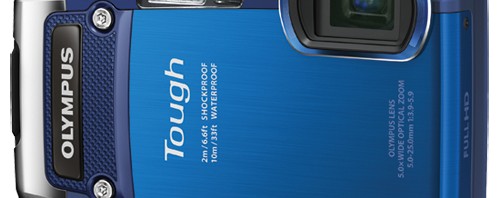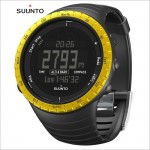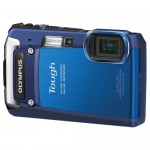If you want to be a good Geologist, you will spend most of your time outdoors. Even if you work for a good company, Geology it itself is a hand-on science(exception to geochemistry, CAD modeling, analytical geology, etc). I was introduced to field geology this year through the University of Calgary Field School program (GLGY 337). I learned a lot of geological field techniques along with what “tech equipments” are most suitable for work.
Aside from Rite in the Rain all-weather notebook, hiking backpack, large water bottles, suitable clothing and first aid items, you will find the following list of equipments to be very useful in the field.
- Waterproof wrist watch
- Mobile phone
- GPS unit with selectable conventions(WGS-84, NAD-23, etc)
- Digital Camera
Waterproof wrist watch
Personally I rarely meet people who already haven’t invested in a smartphone. But if are in the minority or not owning at least a basic cellphone, then I strongly recommend buying a waterproof wrist watch. If you already own a mobile phone of some kind, I would get a waterproof case for it because it will be cheaper if you shop around. For example, Suunto Core Wrist-Top would not only a watch, but also has built in altimeter, barometer, compass, and depth measurement sensors. However, in the Field Geology, you should be cautious on what tools you use to measure elevations and such by making sure that equipments are properly calibrated.
Camera
There are several different digital cameras in the market with high resolution image output. Since we work outdoors, preferentially waterproof, shock proof, drop proof, sunlight/heat proof and dust proof units would be the best. In Canada it is somewhat difficult to obtain models as compared to Europe or US. Some of my friends have used general consumer cameras geology field schools. If you take good care of them, you can even use a DSLR camera which will produce much better quality high resolution images.

When taking pictures of geological structures (folds, striations, stylolites, etc), grains, units and rock types make sure to include something in the picture for scale. A ruler with centimeter data visible would be the best solution for small area images. You could use your hammer as well. If the picture is large one (such as a large fold) place a pogo-stick or a person whose height you know as close to the outcrop as possible. This will improve the data quality of the pictures.
Some people use tripods to stabilize the camera. You can buy a small flexible tripods at retail stores across Canada. I strongly discourage using a conventional tripods because they are large. It is important to keep equipment light and small!
Laptop and Internet
Usually armature Geologist don’t take computers to the field. Even in the professional environment a geological company will provide a laptop and other electronic equipments if necessary for the job. In case you are highly depend on technology and have a pressing need for a computer, make sure you either buy a cheap unit that you don’t mind breaking at the end of the project. The other option is to buy an expensive, top of the market and heavy duty laptop. These heavy duty units often goes for sale from $1800 to $5000 Canadian. Unless provided by a company or a university, I would not recommend buying a unit personally.
Sometimes even an avid Geologist will need the access to the Internet to gather additional data and/or feed data to a remote system on site. How you access the Internet during field work highly depend on the area and the type of work. If you are going out just for day trips to collect samples and data, you can always use the Internet at the hotel or from a store nearby (often McDonalds and others have free wifi services). The other option is to find out how good the cellphone reception in the area. This way you can connect to the net using the mobile network. The last possible and the most expensive option is to take a mobile satellite dish Internet services in the woods(most extreme case).
If you are planing to record your data on a remote server, make sure you have appropriate access to Internet. If not go traditional and write it on a physical field book. When using applications in phones / tables and software in computers, run the program for updates before leave for the job. Do not expect to depend entirely on technology for Geologic work.
I hope this article helps you in preparing for your next field work. Like I mention at the beginning, this page only concern about tech toys and never ever forgot other essential items. Have a happy georgasm.


